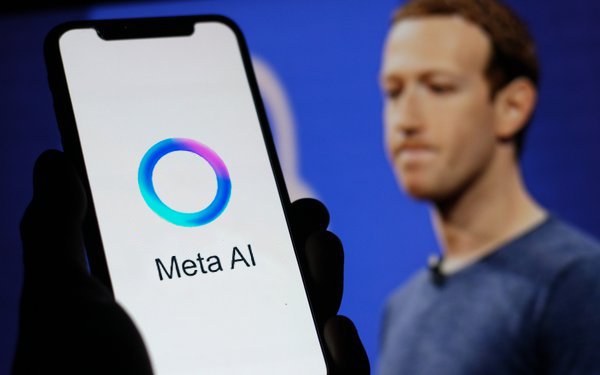
The AI race has become a hot mess, with executives
at top companies spending billions on engineering talent to conquer the market.
Meta Platforms CEO Mark Zuckerberg on Wednesday revealed during the past few months its platforms have begun to
see “glimpses of our AI systems improving themselves. The improvement is slow for now, but undeniable. Developing superintelligence is now in sight.”
Calling it a new era for
humanity, Zuckerberg believes AI will improve existing systems and enable the creation and discovery of new things that are not imaginable today.
Zuckerberg compared the development of AI
superintelligence to the way farmers grew food 200 years ago, and explained how the technology could advance humanity.
But with so much time and money spent and regulations needed to protect
consumers, is humanity ready to relinquish its grip on privacy?
advertisement
advertisement
“Meta's vision is to bring personal superintelligence to everyone,” Zuckerberg wrote. “We believe in putting
this power in people's hands to direct it towards what they value in their own lives."
Zuckerberg added: “Personal superintelligence that knows us deeply, understands our goals, and can
help us achieve them will be by far the most useful.”
Are advertisers, marketers and consumers ready to give up that type of personal information for convenience? The concept of
"superintelligence" taking our privacy is a complex one, deeply intertwined with the broader implications of advanced AI and the future of data privacy.
“Personal devices like
glasses that understand our context because they can see what we see, hear what we hear, and interact with us throughout the day will become our primary computing devices,” Zuckerberg wrote.
Earlier this year, Meta also announced plans to give brands the ability to fully create and target advertisements through AI tools by the end of next year. It already offers some AI tools that can
generate variations of existing ads, but the company aims to help brands create advertising concepts from scratch.
In an example from The Wall Street Journal, a brand could
provide a product image and a budget, and Meta’s AI would generate the ad with an image, video and text and then determine a target audience on Instagram and Facebook with budget
suggestions, the report said.
Meta has spent billions of dollars in assembling a “superintelligence” team from top companies across the industry.
The latest departure,
which comes again from Apple, was reported by MacRumors. Bowen Zhang, a specialist in multimodal
AI who was part of Apple’s foundation models group, will move to Meta’s superintelligence team. This marks the fourth loss of a technology expert for Apple in one month.
Ruoming
Pang, Apple’s head of AI models, in July left to join Meta, Bloomberg reported. Pang oversaw the training of foundation models
powering features like Apple Intelligence. Two other key researchers followed Pang, further depleting Apple’s AI ranks.
In addition to poaching key talent from Apple, Google, OpenAI and
others, a key investment came in the sum of $14.3 billion to acquire a stake in Scale AI, along with their CEO, Alexandr Wang, and other employees.
A search on Google AI Mode returned a list
of AI talent excluding Zuckerberg and Wang. Nat Friedman, former GitHub CEO, is now co-leading Meta Superintelligence Labs with Wang to focus on AI products and applied research.
Shengjia Zhao, former OpenAI researcher and co-creator of GPT-4, is now Chief Scientist for Meta Superintelligence Labs, reporting to Wang, and other researchers have been recruited and hired.
As reported in articles across the web, Meta has hired numerous researchers from top AI companies. Some examples from OpenAI include Trapit Bansal, Sengjia Zhao, Shuchao Bi, and Hongyu Ren.
Examples from Google DeepMind include Lucas Beyer, Xiaohua Zhai, Jack Rae, and Johan Schalkwyk, and from Anthropic, Joel Pobar.